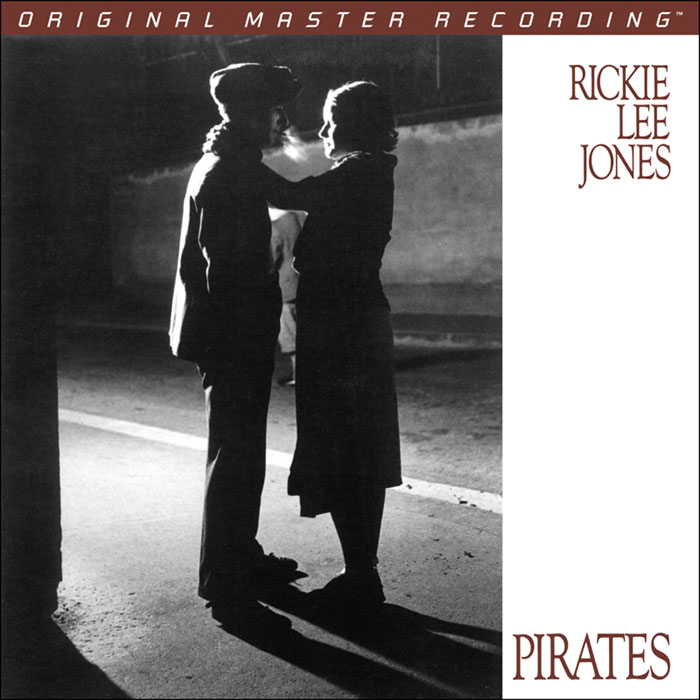Logowanie
Dziś nikt już tak genialnie nie jazzuje!
Bobby Hutcherson, Joe Sample
San Francisco
SHM-CD/SACD - NOWY FORMAT - DŻWIĘK TAK CZYSTY, JAK Z CZASU WIELKIEGO WYBUCHU!
Wayne Shorter, Freddie Hubbard, Herbie Hancock, Ron Carter, Elvin Jones
Speak no evil
UHQCD - dotknij Oryginału - MQA (Master Quality Authenticated)
Chesky! Niezmiennie perfekcyjny
Winylowy niezbędnik
ClearAudio
Double Matrix Professional - Sonic
najbardziej inteligentna i skuteczna pralka do płyt winylowych wszelkiego typu - całkowicie automatyczna
Dick De Graaf
Fo4r Winds
FOUR WINDS stemmed from my wish to enrich my musical world with those of musicians from four physical, spiritual and musical points of the compass. I was seeking for a sequel to a previous project that I produced and played on with musicians from Bamako, capital of Mali in West Africa. The project led to the cd ?Djigui: Les Sofas de Bamako featuring Dick de Graaf saxophone ténor?. Even though the recording was very exciting and inspiring, I had no choice but to adjust to the musical concept of my West-African friends. The challenge of this album was to steer musicians from all the quarters of the world into a real musical encounter in which my compositions are the starting points for improvisations that value the musical traditions the band members grew up with. INGA JUUSO is from the North. Being a renowned vocalist from Norway, she has kept the Yoik tradition alive for more than 30 years. The Yoik arguably is the oldest, living musical tradition from Northern Europe. It is to a degree comparable with the West African Griots. Next to sing the praises of people, animals or countries like in the Griots, the Yoiks also give shape as well. When Inga sings of her son, she creates him on the spot. On the album, Inga uses some Yoiks as starting points for improvisation. She sings in Sami, the traditional language of Lapland. Her rough and yet flexible voice associates with the Arctic winds of the bare plains. Inga is of small stature, but has a large space within her range. Tabla player and percussionist TY BURHOE represents the east wind. Recently, Ty played on the Turtle Records production ?Think? It?s all good? by bass player Dean Peer, which led me to pick him for this project. For more than a decade, Ty has been a disciple of the world famous tabla virtuoso Ustad Zakir Hussain. Before, inspired by his father, a classical singer and trombone player, he had focused on classical music only. With his own ?Curandero? (?Healer?) project, Ty fuses traditional cyclical rhythms of the Indian Tal with the compás of the Spanish Flamenco. The Southern winds blow from Mali, represented by bass player and singer MOUSSA DIALLO and Kora player MAMADOU DIABATÉ. The musical tradition from their country pours from every note they play. Moussas playing has a funky feel to it. He makes our music catchy and elegant. Mamadou is a true virtuoso. The kora (lute harp) is the Mali national instrument. Yet, like Moussa, Mamadou never stuck to traditional music and always explores other musical areas. Therefore he is a lot more flexible on the kora than most other players I know. Phrases which I assumed couldn?t be played on the kora with it?s fixed tuning were no obstacle to Mamadou at all. I seldom played with musicians who could enter into my music as fast as he could. The Western winds come from Curacao and the steel drums of RUSSEL ?KONKIE? HALMEYER. Near the end of 1996 I met him at the ?Klap op de vuurpijl? festival in Amsterdam, where we both played in the band of bass player Eric Calmes. Konkie has been a regular guest soloist in my septet ever since and every now and then we play duets. We wallow in the Western world of harmonies and often whimsical rhythms in which I have been feeling very much at home for years now, ever since playing with musicians such as Calmes and guitarist and composer Cedrick Dandaré. With Konkie, I can play just anything. Whether the music nervously swings, or easily grooves, we always find each other blindfold. Dick de Graaf



































